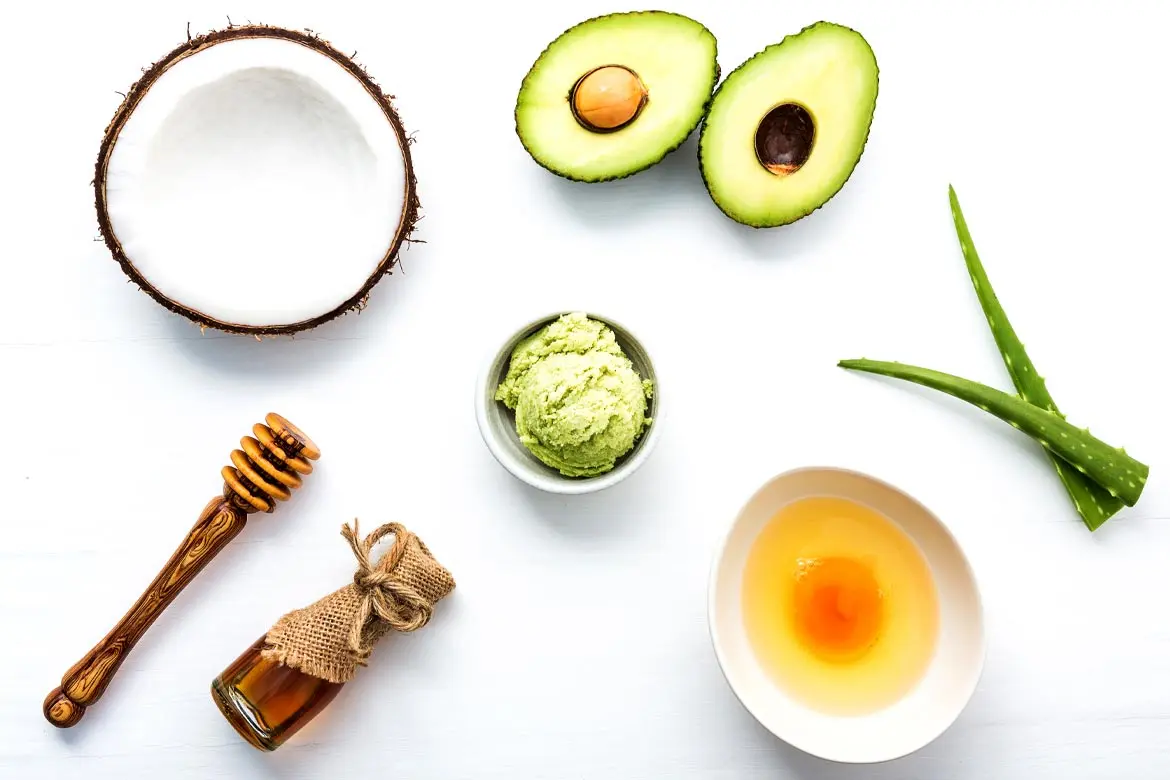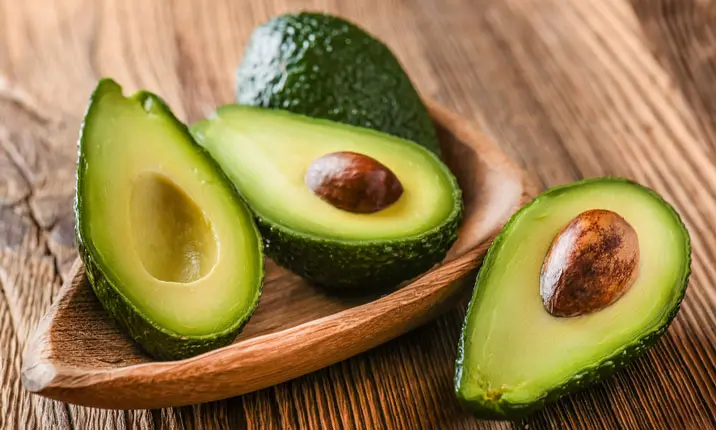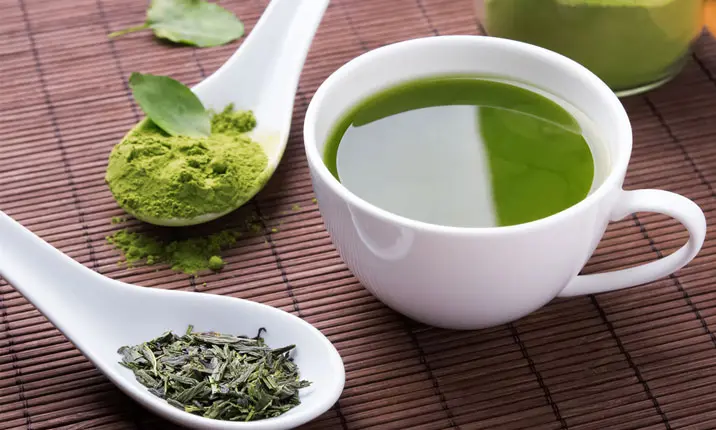-
-
Featured Care Areas


Source: Shutterstock
The Best Foods for Healthy & Glowing Skin
Last updated: Tuesday, June 30, 2020 | 4 min reading time
Healthy skin comes from within. Using skincare products can tackle surface-level problems, but eating a well-balanced diet not only helps give your skin health a boost, it also keeps you healthy at the same time.
To have healthy, glowing skin, you need to consume a wide variety of nutritious foods and reduce your intake of unhealthy foods such as processed, oily and deep-fried foods.
Give your skin a boost by including the following foods into your diet:
1. Fatty fish
Fatty fish like salmon and mackerel are great sources of omega-3 fatty acids that help your skin to look supple and radiant. They can also reduce inflammation, redness, pimples and strengthen your skin against UV rays.
Packed with vitamin E, antioxidant-rich fatty fish protects your skin from irritation and radical activity that could make your skin age faster.
Rich in protein and zinc, the nutrients in these fatty fish also help to strengthen your skin and improve the production of new skin cells.
2. Avocados
Avocados contain healthy fats which can help your skin stay moisturised and firm.
They also contain vitamin C and E – 2 important nutrients that your body need to support healthy skin and fight free radical formation.
Avocados are also rich in biotin, a B vitamin that some nutritionists believe can help promote healthy skin and hair. A deficiency of biotin can lead to skin problems such as rashes, ache, psoriasis, dermatitis and overall itchiness.
3. Walnuts
Nuts are nutritious snacks that pack a punch, even in small doses. Walnuts contain vitamin E, vitamin C, zinc and selenium, all of which promote healthy skin.
Walnuts contain a higher amount of omega-3 and omega-6 fatty acids than other nuts, making them an extra healthy choice if you're looking for skin benefits. However, it is important to keep your nut intake to one handful (1/4 cup) a day. Eating anything in excess can lead to weight gain. Moreover, eating too many walnuts may cause certain adverse effects, including bloating, stomach pain and skin allergies in some individuals.
4. Sunflower seeds
Seeds, along with nuts, are healthy snacks that boost the health of your skin. Sunflower seeds are a particularly good choice as they contain plenty of vitamin E, selenium, and zinc.
Sunflower seed oil is rich in linoleic acid and essential fatty acids that your body needs to support healthy skin.
5. Carrots
Carrots are rich in vitamin A, which fights against sunburns, cell death, and wrinkles. Vitamin A also adds a healthy, warm glow to your skin.
You can get vitamin A by consuming provitamin A through fruits, vegetables, and other plant-based products. Your body then converts beta-carotene into vitamin A to protect your skin from the sun.
Provitamin A can also be found in oranges, spinach, sweet potatoes, pumpkin, bell peppers, broccoli and more.
6. Soybeans
Soybeans contain isoflavones that block estrogen in your body to help reduce the appearance of wrinkles and improve the elasticity of your skin.
Postmenopausal women can also benefit from isoflavones as they prevent dry skin and increase collagen production to improve skin texture. They also protect your skin from UV radiation, which can prevent some types of skin cancers.
You can also find isoflavones in chickpeas, pistachios, and peanuts.
7. Dark chocolate
You don't need an excuse to indulge in a sweet treat once in a while, but if you've been waiting for a sign, here it is.
Dark chocolate is beneficial for your skin because cocoa powder boasts a bunch of antioxidants. These antioxidants hydrate and smoothen your skin, making your skin less sensitive to sunburn and improves the blood flow of your skin. Make a healthy choice by opting for a bar of dark chocolate with 70% cocoa for more antioxidants and lesser added sugar.
8. Green tea
Green tea has been said to protect the skin against external stressors and ageing. This is because it is antioxidant-rich and contains catechins that protect your skin, reduce redness, increase hydration, and improve elasticity.
A diet rich in antioxidants along with adequate hydration may even out your skin texture, strengthen your skin barrier and improve your overall skin health.
Avoid adding milk to green tea as the combination can reduce the effects of the antioxidants present in green tea.
Additional tips for healthy skin
Don't forget to stay hydrated because water plays a big part in the appearance of your skin. Water ensures your skin has enough moisture, which reduces the appearance of fine lines and wrinkles. It also helps with nutrient absorption, removal of toxins and blood circulation.
Besides food and water, it is important to observe proper hygiene. This means no touching your face until you've washed your hands. Your hands carry more bacteria than you think and the occasional touch here and there can add up. After a long day out, cleanse your face thoroughly to ensure all the environmental stressors such as irritants, allergens and microbes, dirt and sweat are removed completely.
If your skin is constantly itching, breaking out or inflamed, and you are unsure about what is going on, it's always a good idea to see a dermatologist. Many of these skin conditions can be treated effectively with over-the-counter medications. But in some cases, your skin may be telling you that you have a more serious underlying condition.
The 12 Best Foods for Healthy Skin. Retrieved on 22/2/20 from https://www.healthline.com/nutrition/12-foods-for-healthy-skin
Anti-Acne Diet. Retrieved on 22/2/20 from https://www.healthline.com/health/anti-acne-diet
What are some skin-friendly foods? Retrieved on 22/2/20 from https://www.medicalnewstoday.com/articles/322986#walnuts
Slideshow: Foods for Healthy, Supple Skin. Retrieved on 22/2/20 from https://www.webmd.com/beauty/ss/slideshow-skin-foods
The Beauty Benefits of Biotin, According to Science. Retrieved on 11/6/20 from https://www.dermstore.com/blog/top_ten/biotin-benefits-hair-skin-nails/
Essential Fatty Acids and Skin Health. Retrieved on 11/6/20 from https://lpi.oregonstate.edu/mic/health-disease/skin-health/essential-fatty-acids#lipid-metabolism
Anti-Acne Diet. Retrieved on 22/2/20 from https://www.healthline.com/health/anti-acne-diet
What are some skin-friendly foods? Retrieved on 22/2/20 from https://www.medicalnewstoday.com/articles/322986#walnuts
Slideshow: Foods for Healthy, Supple Skin. Retrieved on 22/2/20 from https://www.webmd.com/beauty/ss/slideshow-skin-foods
The Beauty Benefits of Biotin, According to Science. Retrieved on 11/6/20 from https://www.dermstore.com/blog/top_ten/biotin-benefits-hair-skin-nails/
Essential Fatty Acids and Skin Health. Retrieved on 11/6/20 from https://lpi.oregonstate.edu/mic/health-disease/skin-health/essential-fatty-acids#lipid-metabolism











